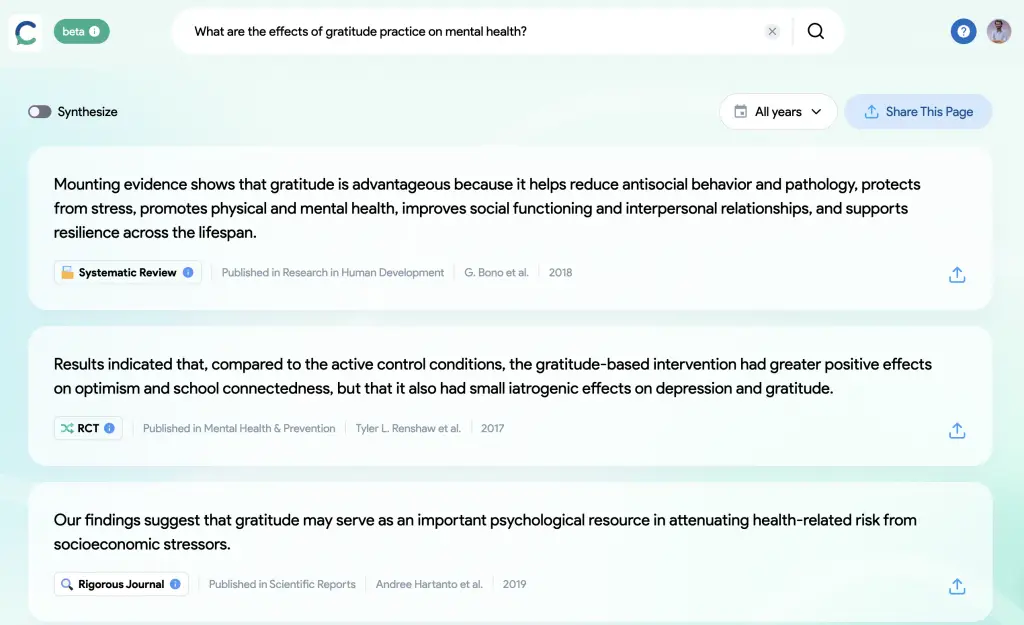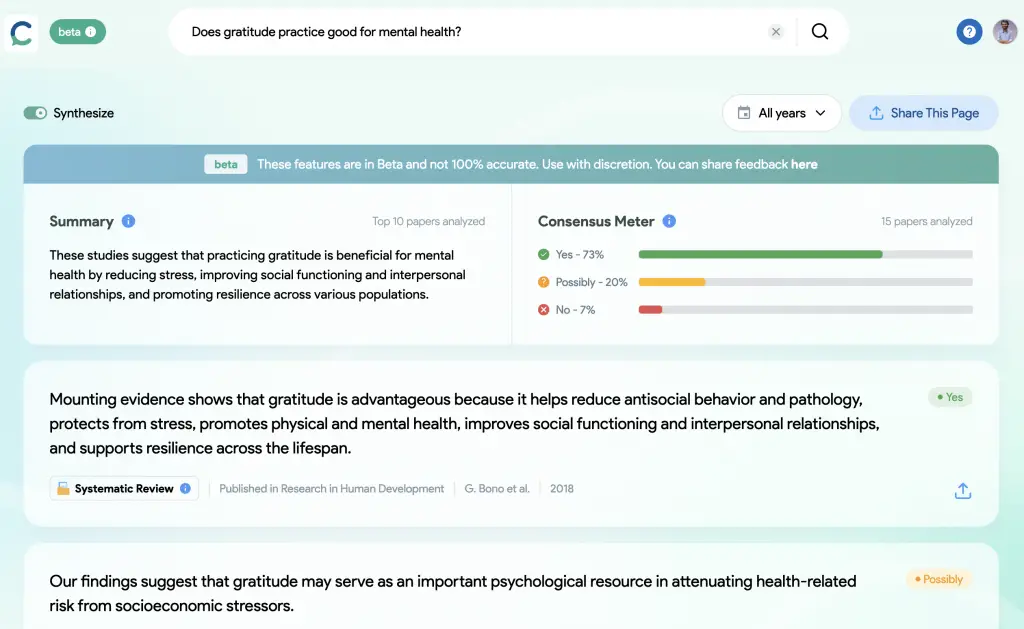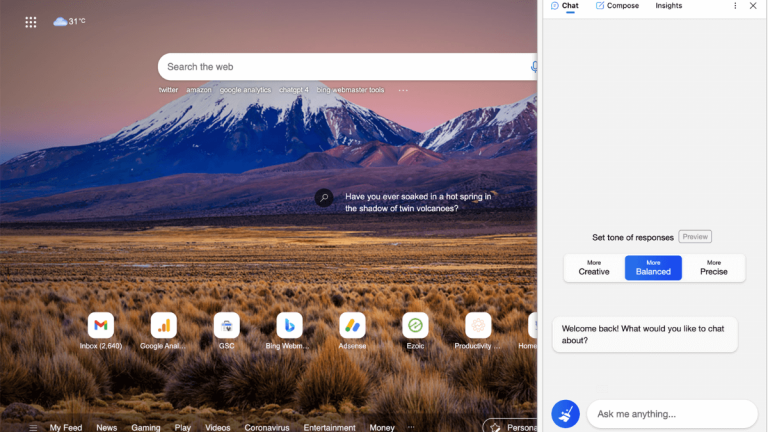Harness the Power of AI for Research: An Introduction to the Consensus App
If you are looking for evidence-based answers from scientific research, you might want to try Consensus, a new search engine. The tool aims to provide a summary of top published papers in response to a user’s query, making it easier for researchers to access relevant and accurate information.
In this blog post, let’s learn how to use Consensus for your research needs and how it can help you save time and effort.
What is Consensus?
Consensus is a search engine that uses AI to find answers in research papers. The best way to search is to ask a question. Consensus will then scan through millions of papers and return the most relevant ones with key findings extracted and summarized for you.
You can also see the full paper, the citation, and source of the answer.
Consensus only searches through peer-reviewed, published sources, so you can trust the quality of the information. It also shows you results from scientists, not marketing teams, so you can avoid ads and biased content.
Consensus covers a wide range of topics, from biology to social sciences, and is constantly adding new domains and sources.
How to use Consensus?
To use Consensus, you just need to type your question in the search box and hit enter. For example, if you want to know the effects of gratitude practice on mental health, you can ask:
What are the effects of gratitude practice on mental health?
Consensus will then return a list of papers that answer your question, along with a summary of the main findings.

You can also see the full paper by clicking on the title or the link below the summary. You can also see the citation information.
You can enable the Synthesize button from the left button to see more details of the findings with consensus meter. But this works only with a yes or no question. For example, you may ask:
Does gratitude practice good for mental health?
Then you can see consensus meter given in the following screenshot.

Tips for searching with Consensus
Here are some tips to help you get the most out of Consensus:
- Ask about the relationship between concepts: For example, Does spanking impact childhood development? What predicts success as a startup founder? Does creatine improve cognition?
- Ask a simple yes/no question: For example, Can Zinc help treat depression? Does morning sunlight improve mood? Do home crowds impact referee bias?
- Ask about the effects of a concept: For example, What are the effects of gratitude practice? What are the mental health benefits of psychedelics? What are the effects of drug decriminalization?
- Focus on questions that researchers may have studied: Topics range from biology to social sciences. Avoid questions that are too vague, subjective, or personal.
- Use keywords that are relevant and specific: For example, instead of asking How to be happy?, ask What are some evidence-based strategies to increase happiness?
- Use quotation marks to search for exact phrases: For example, “cognitive behavioral therapy” instead of cognitive behavioral therapy.
Why use Consensus?
Consensus is a powerful tool for anyone who wants to get evidence-based answers from scientific research. Whether you are a student, a researcher, a journalist, a policy maker, or just a curious person, Consensus can help you:
- Save time: You don’t have to spend hours reading through papers or searching through multiple databases. Consensus does the work for you and gives you concise summaries of key findings.
- Find reliable information: You don’t have to worry about fake news or misleading content. Consensus only shows you results from peer-reviewed sources and gives you confidence scores for each answer.
- Learn new things: You don’t have to limit yourself to your own field or interest. Consensus covers a wide range of topics and domains and lets you discover new insights and perspectives.
How to get started with Consensus?
At the time of writing, Consensus is free to use and easy to access. You just need to go to https://www.consensus.app/ and start searching. You can also follow Consensus on social media or contact them for feedback or suggestions.





